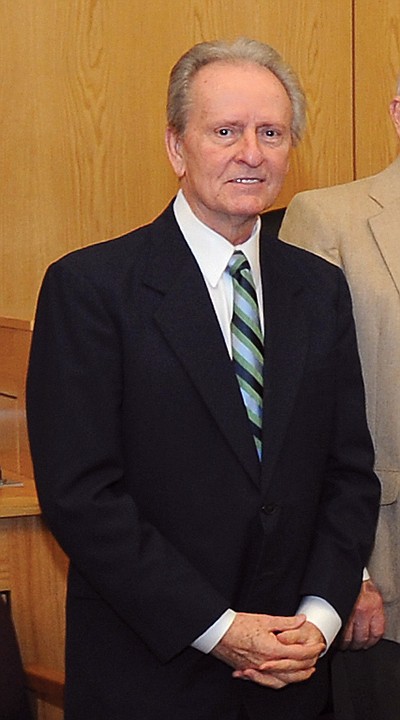The Arkansas Court of Appeals' 12 judges voted unanimously last week to memorialize a former colleague and Hot Springs resident who first adjudicated cases in Garland County.
Per the panel's action, the appeals court conference room at the Arkansas Justice Building in Little Rock will bear retired Judge John B. Robbins' name. The space will be christened as the Pittman-Robbins Conference Room, honoring Robbins and retired appellate Judge John M. Pittman.
Robbins, who first came to the bench in 1985 as a chancery and probate judge in Garland County, said he heard the news at Pittman's retirement party in December.
"It came as quite a surprise to me," he said. "I'm very honored."
Robbins grew up in west Hot Spring County near Bonnerdale and graduated from Bismarck High School. He got his law degree at Vanderbilt University and clerked for U.S. Appeals Court Judge Pat Mehaffy before entering private practice in Hot Springs in 1974.
He was elected in 1984 as chancellor and probate judge of Judicial District 18-E, serving until his 1992 election to the Court of Appeals. His first four years fulfilled the term of Donald L. Corbin, who was elected to the Arkansas Supreme Court prior to completing his appellate judgeship.
Robbins was re-elected to two eight-year terms, but resided locally during the entirety of his 20 years on the appellate bench, choosing to make the commute rather than moving closer to the Justice Building.
Robbins said the remove that appellate work put between him and the process he grew accustomed to as a trial judge was an adjustment, requiring decisions to be rendered mostly from briefs and trial records instead of the testimony and exhibits on which courts of original jurisdiction rely.
"The temperament of a trial judge is one that must allow he or she to deal with attorneys, litigants and witnesses," he said. "You have to have a temperament suited for that. An appellate judge does not deal directly with litigants and very little with attorneys.
"It was quite a shift from having a steady stream of attorneys coming into my chambers on a daily basis. The only people you see are the staff and the 11 other judges, but the appellate bench does provide more time for a judge to research and give a more considered and deliberate decision to an issue of law."
The conference room named in his honor serves as the inner sanctum for three-judge panels to determine the merits of an appeal. A six-judge panel is called on if the first panel isn't unanimous, with a nine-judge panel making the final determination in the event of a 3-3 split.
Robbins said he spends his emeritus years participating in his church's exercise program and spending time with his four grandchildren. He also serves on the Arkansas Supreme Court Committee for Continuing Legal Education and was appointed special master in last year's suit challenging the secretary of state's decision to grant supporters of the minimum wage ballot initiative more time to gather signatures.
Robbins ruled the total met the threshold for allowing another 30 days to collect signatures that can replace those that might later be invalidated. The initiative was eventually placed on the ballot and approved by voters.
Local on 01/31/2015